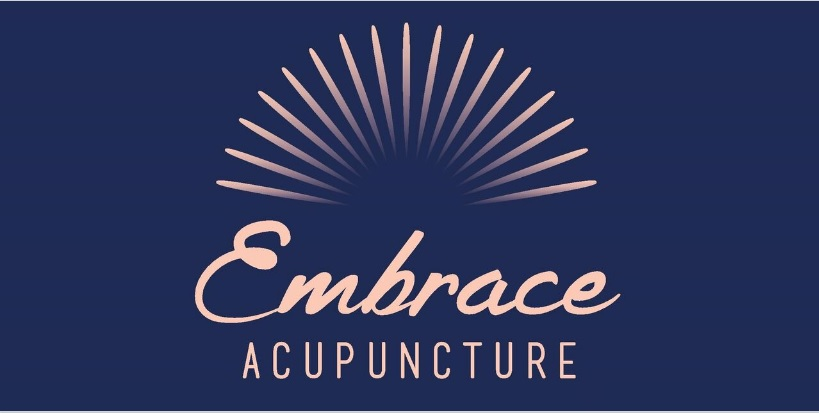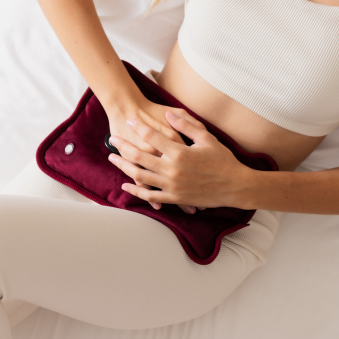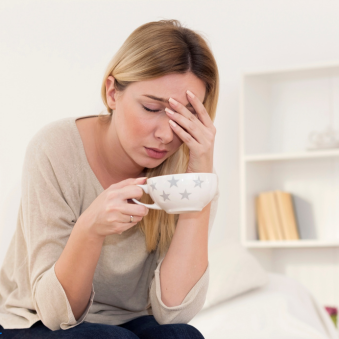Self Care In Your Menstrual Cycle
How to look after yourself best in each phase of your cycle
Do you feel like your energy, mood, and symptoms shift throughout the month — but you're never quite sure how to keep up?
You're not alone. Whether you sail through your cycle with a little cramping and a chocolate craving, or you're managing pain, fatigue, endometriosis, or PMDD, your body is doing a lot behind the scenes.
From a Traditional Chinese Medicine (TCM) perspective, your menstrual cycle is a dynamic rhythm — like the changing seasons. Each phase has its own energy and needs. When we tune in, we can make space for rest, nourishment, and gentle support instead of pushing through or bracing ourselves.
This blog is for every woman or menstruating person who wants to feel more connected to their body — even when it’s tricky.
👉Learn how Acupuncture can support your hormones and period health
🩸 Phase 1: Menstruation — The Blood Phase (Days 1–5)
Your inner winter. A time to slow down and release.
What’s happening?
Your uterine lining is shedding = your period
Oestrogen and progesterone are at their lowest
You might feel tired, achy, foggy, or emotionally tender
If you're struggling:
Heavy bleeding, sharp pain, clots, or fatigue could be signs of endometriosis, fibroids, or blood deficiency from a TCM perspective. You deserve support — not to just “deal with it.”
How Chinese Medicine sees it:
This is a time of letting go. We aim to support smooth blood flow and relieve stagnation while gently replenishing what’s lost.
Supportive self-care ideas for your period:
🛌 Prioritise rest (even if it's just 10 minutes lying down in silence)
🍲 Eat warm, nourishing meals like congee or slow-cooked soups
🍵 Try gentle teas: rose, red dates, ginger (depending on your pattern)
🧣 Keep your belly and lower back warm
🧘♀️ Gentle yoga or bodywork may ease tension, but only if you feel up to it
Acupuncture may help:
Ease cramps, clotting, or dragging pelvic pain
Support fatigue and low mood
Bring regularity if your cycles are irregular or too short/long
See more research on Acupuncture for period support
🌱 Phase 2: Follicular Phase — The Yin Phase (Days 6–13)
Your inner spring. Energy may start to rise — slowly and gently.
What’s happening?
Follicles are growing in your ovaries
Oestrogen gradually increases
You might feel clearer, brighter, more hopeful — or you might not, and that’s okay too
If you’re not bouncing back:
For some, this phase feels flat, not fresh. You may feel depleted or emotionally fragile. That’s where Yin and Blood support in TCM comes in.
Chinese Medicine view:
This phase is all about rebuilding — nourishing the body after the blood loss of menstruation. We want to support Yin (fluids, calm, cooling energy) and Liver Blood, which fuels ovulation and mental clarity.
Ways to support yourself:
🥚 Lean into protein-rich, iron-supporting foods: eggs, leafy greens, beetroot, bone broth
🥒 If you run hot, include cooling foods like cucumber and mint
🌿 Make space for gentle creativity or connection — not productivity for productivity’s sake
🚶♀️ Move your body only as it feels good — don’t force it
Acupuncture may help:
🔥 Phase 3: Ovulation — The Yang Phase (Around Day 14)
Your inner summer. This is your most outward, vibrant time — but remember, “outward” doesn’t have to mean extroverted, energised, or overcommitted. It just means your body is peaking hormonally, and that can show up in all kinds of ways.
What’s happening?
A mature follicle releases an egg
Oestrogen is at its highest, and there’s a surge in luteinising hormone (LH)
One follicle releases an egg (ovulation!)
You might feel more confident, clear-headed, motivated, social, or sensual — or not!
If this phase is rough:
Some folks feel anxious, bloated, angry, or wired. Ovulation pain, headaches, or overwhelm are also common. This might reflect Qi stagnation, heat, or hormonal imbalance from a TCM perspective.
Chinese Medicine insight:
This is the energetic pivot point — from Yin (nourishing) to Yang (active). Your system is doing something big, and it needs free-flowing Qi and blood to get there smoothly.
Gentle self-care tips:
🍳 Nourishing meals with warming spices (like cinnamon or ginger) if you run cold
💃 If you’re feeling bold or expressive — go for it! Just check in with your boundaries
⚖️ This phase often comes with an urge to overcommit, say yes to everything, or power through — but that can lead to burnout later in the luteal phase. Pause, breathe, and check in with your capacity
💛 Movement like dancing, walking, or yoga can help move excess Qi or emotional heat
Acupuncture may help:
Reduce ovulation pain or cycle-related headaches
Support egg release and fertility outcomes
Ease emotional reactivity or anxiety
🍂 Phase 4: Luteal Phase — The Qi Phase (Days 15–28)
Your inner autumn. A time of transition — and for some, a real challenge.
What’s happening?
Progesterone rises, preparing the body for potential pregnancy
If you’re not pregnant, hormone levels fall, triggering your period
PMS, low mood, bloating, sore breasts, or PMDD symptoms may appear
If this phase feels like a storm:
You are not “too much” — your body is likely dealing with a significant hormonal drop, stress load, or underlying imbalances like Liver Qi stagnation or Spleen deficiency.
TCM approach:
This phase is all about supporting Qi flow, calming the Shen (spirit), and strengthening your Spleen (digestion, mood, holding blood in place).
Supportive rituals:
🧁 Craving carbs? Choose warm, nourishing options like roasted root veg or pumpkin soup
🫖 Herbal teas like chamomile, licorice, or ginger to support digestion and mood
😴 Honour rest — even if the world doesn’t give you permission
✨ Consider journaling, EFT (Emotional Freedom Technique), or talking to someone supportive
Acupuncture may help:
🌺 You Deserve Care in Every Phase
Whether your cycle feels like a smooth rhythm or a hormonal rollercoaster, your body is communicating with you — and you don’t have to figure it all out at once.
Acupuncture and Chinese medicine offer a powerful, compassionate way to meet your body where it’s at, not where it “should” be.
💡 And if this all feels like a lot, don’t worry — there’s no need to perfect it. Just begin by noticing. How do you feel at different points in your cycle? What changes, what stays steady?
Because at the end of the day, your body is your best teacher. When you learn to listen, everything starts to make a little more sense.
✨ If you're feeling out of sync with your cycle, struggling with symptoms, or just want to feel more in tune with your body...
This blog was written by Dr Maya Amhaz (TCM), a registered Acupuncturist at Embrace Acupuncture Melbourne.
Maya supports women navigating hormonal imbalances, painful or irregular periods, Endometriosis, PMDD and more — using a personalised mix of Acupuncture, Herbal Medicine, and Integrative Health strategies.






